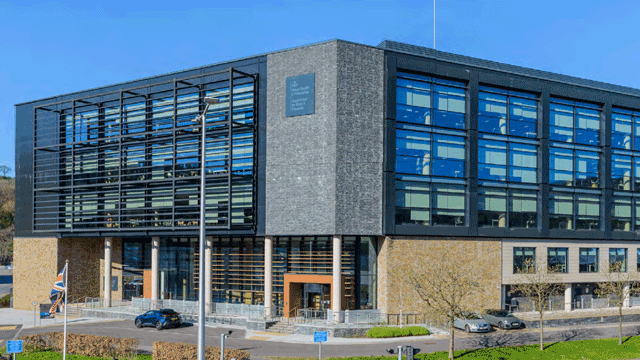“The wow factor has finally arrived in Cape Town,” exclaims the city’s retail guru Jonathan Yach over lunch at one of the city’s new breed of trendy restaurants. For visitors to this South African city, that may seem like an odd thing to say. Cape Town is after all, world famous for its breathtaking natural scenery. But that is not what he is talking about. He is talking about the complete transformation of the city centre over the past decade.
Jonathan’s older brother Theodore, who has been working in the business district for past 18 years, is also at the lunch. He points out that reversing decades of neglect in Cape Town’s CBD has taken a great deal of work. “We’ve had to dramatically alter the legacy left by apartheid,” he says. “Back then, planners happily lined their own pockets and the city paid the price.”
In the mid-1980s corporate occupiers deserted the city in droves for decentralised office nodes, while major retailers headed for the safety of suburban malls.
Today, thanks to greatly improved city-management and an influx of foreign investment, the city centre is almost unrecognisable. The corporate occupiers are back and rents are on the up. Locals and tourists can now shop in glitzy department stores or haggle with street traders selling African curios. Then it’s off to enjoy a meal or cocktail at any number of the bars and restaurants catering for sophisticated tastes.
The Yach brothers can claim credit for much of the transformation. Jonathan points out that the local property industry has had to learn the skills needed to regenerate rundown areas. “South Africans have always been great copycats – but now we’re gradually learning to be innovators,” he says.
The brothers have spent the bulk of their professional lives working for property companies in Cape Town. “We really had no choice but to go into property, given our family background,” says Theodore.
Their maternal grandfather, Morris Mauerberger, was a leading industrialist in the 1930s and 1940s, and was responsible for creating the first buildings on the reclaimed foreshore of Cape Town. Their father, Solly Yach, was also in the business and at one time ran the housing council for Cape Town.
Jonathan worked as a retail specialist with regional giant Broll and Theodore headed the investment side for Pam Golding Commercial. In the past few years though, both have decided to go it alone.
After handling the growing partnership between Broll and CB Hillier Parker and later CBRE, Jonathan left to set up on his own shortly before the global giant swallowed up the regional player.
Theodore, now 46, set up Theodore Yach Property Services in 1995 and was the driving force behind the creation of central Cape Town’s business improvement district. The clean-up effort helped to attract considerable investment – particularly from Irish investors – and reverse the city centre’s fortunes. “I got involved a decade ago out of desperation – I wanted someone to blame,” says Theodore. “But I realised that complaining was easy and something had to be done.”
Once the city-centre property owners got on board and the council joined in, it became possible to address the issues such as crime and grime that were keeping occupiers away from the CBD. “The institutions are now coming back at a rate of knots,” says Theodore.
And while his big brother was wooing corporate occupiers, 40-year-old Jonathan had his sights on the city’s retail offering. “We have literally had to create the high street,” he says. “It’s been difficult to get property owners not to see the retail component of their buildings as anything other than a problem child.”
For several decades, the city’s retail mix consisted mainly of pawnbrokers and porn merchants. After setting up his own retail consultancy in 2003, Jonathan Yach Consulting, he has been bringing property owners together and has been able to broker broad agreement on a rental policy for the city centre’s various zones. “At present, 32% of national retailers are represented in the city centre but only about 25% are represented properly, so there is still work to do.”
That work is happening at a rapid pace. The consultation process with local property owners is now on course to see about 200 undesirable retailers disappear as their leases are not renewed.
In another support service first for the city, the brothers have jointly created the rather obviously titled Cape Town Retail Research Company. In fact, they were somewhat flabbergasted to discover that it had not been done before. “If we are going to create a new urban environment, the research has to be available to bring in the retailers,” says Jonathan.
While much has been achieved, the brothers say it is still an uphill struggle to encourage the local property industry to get up to scratch. “We’re coming off an exceptionally low rental base and our management systems have to be upgraded to get the best out of yields,” says Theodore.
He cites one example of a building changing hands and the yield being improved by 2% one month after transfer thanks to effective management. “We sorely need property management companies here and until they take ownership we won’t win,” he says.
Sights on the urban environment
Jonathan chips in that local property professionals have to realise that the benchmark for success is creating the urban environment and not just being worried about their individual building. “Our vision for Cape Town is exceptionally positive and, if we get it right, there will be no losers.”
|
|
|
Cape Town’s now-bustling bars and vibrant night-life are a far cry from the insecurity of a decade ago. More restaurants are being opened every day, a thousand hotel rooms are in the planning pipeline, and tourists and residents are flocking back to the city. According to Theodore Yach, much of Cape Town’s revival is a direct result of the business improvement district that he helped set up in 2000. The BID, based on the US model, pulls in a levy of 9.5% of the total rates bill for the central business district, which is then ploughed into improving security and cleaning. Between 2000 and 2004, the percentage of people saying they felt safe in the area rose from 16% to just under 50%, according to a survey commissioned by the BID. Now the renaissance of Cape Town’s CBD has led to attempts to revive the rundown outlying areas of the conurbation. Plans to improve these areas – including the construction of a canal to link the Victoria & Albert Waterfront to the resort district of Century City to the north – are being considered, in the hope that better links will export the success of the CBD to Cape Town’s suburbs. |










